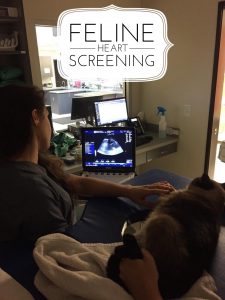Read Our Blogs
Diabetes Treatment for Pets
Dr. Cassandra Gail Knapp [printer-friendly version] Diabetes is a condition of high blood sugar levels. When discussing blood sugar, we must also discuss insulin because they literally go hand-in-hand. Insulin is a hormone made within the body (specifically, the pancreas) in response to sugar. When an animal eats sugar (glucose), the body must release insulin…
Read MoreDisaster Preparedness for Your Pet
Dr. Kathryn Sarpong [printer-friendly version] The news reminds us that disaster can strike at any point and result in the need to quickly evacuate your family from your home. Your family includes the furry and feathered members. The floods in New Orleans taught many lessons including the need to include pets in disaster plans. You…
Read MoreDog Park Safety
Katie Curtis, Veterinary Technician Taking your pet to the dog park is a terrific way for your pet to socialize while expending excess energy. Here are a few tips to keep everyone safe while at the dog park! Always check with the dog park to see if they have any requirements and/or rules before going to…
Read MoreCanine Influenza and the New Vaccine
[printer-friendly version] Canine Influenza is a flu virus that affects dogs. It is thought to have mutated from the equine influenza a few years ago and was first seen in racing greyhounds in 2004. Recently, a new vaccine has been released with conditional approval and has generated a lot of press about this virus. There…
Read MoreDr. Sarpong is Certified by the ABVP
Dr. Sarpong mastered a rigorous and demanding application process and certification examination in order to obtain Diplomate status. To qualify to sit for the extensive, two-day examination, a veterinarian must complete either a residency program or six years of clinical veterinary practice. In addition, two case reports, references, descriptions of practice procedures, and professional education…
Read MoreFeline Heart Disease Screening
January, February, and March 2018 dates for Heart Disease Screening for Cats, aged 2 and older, available now! There exists a large population of cats who fall into the category of having aclinical (asymtomatic) heart disease. The cat may sound normal with a stethoscope exam, and may look and act normally, but they may have…
Read MoreFeline Nutrition
Dr. David Deresz [printer-friendly version] Nutrition is a very important component to maintaining good health for cats through all life stages. Calories, macronutrients, and electrolytes requirements change as your pet ages. These may need adjustments when certain diseases develop. Kittens require a higher amount of calories per body weight, when compared to adult and senior…
Read MoreFinding the Right Pet Food
Dr. Cassie Knapp Veterinarians are just as confused as pet owners by pet food marketing, and there is a lot of misinformation and mythology on the Internet regarding pet food. In particular, guilt-based or emotion-driven marketing and propaganda should be viewed with skepticism, especially when it is used to sell expensive pet food. -RR Veterinarians…
Read MoreHeartworm Disease
[printer-friendly version] Where do heartworms come from?Heartworms are spread by mosquitoes. When a mosquito feeds on an animal, larval forms of heartworms are injected into the animal.Can my pet catch heartworms from another heartworm positive animal?Not directly. The life cycle of the heartworm parasite requires that it pass through the mosquito for development. The more…
Read MoreHeartworm Disease in Cats
Dr. Maria Badamo [printer-friendly version] Can Cats Get Heartworm Disease? The Answer is YES! Heartworms are exactly what the name implies, parasitic worms that live in the host (dog or cat) heart. While it is true that dogs are at much higher risk than are cats of getting the typical heartworm infection, feline infection is now…
Read More









